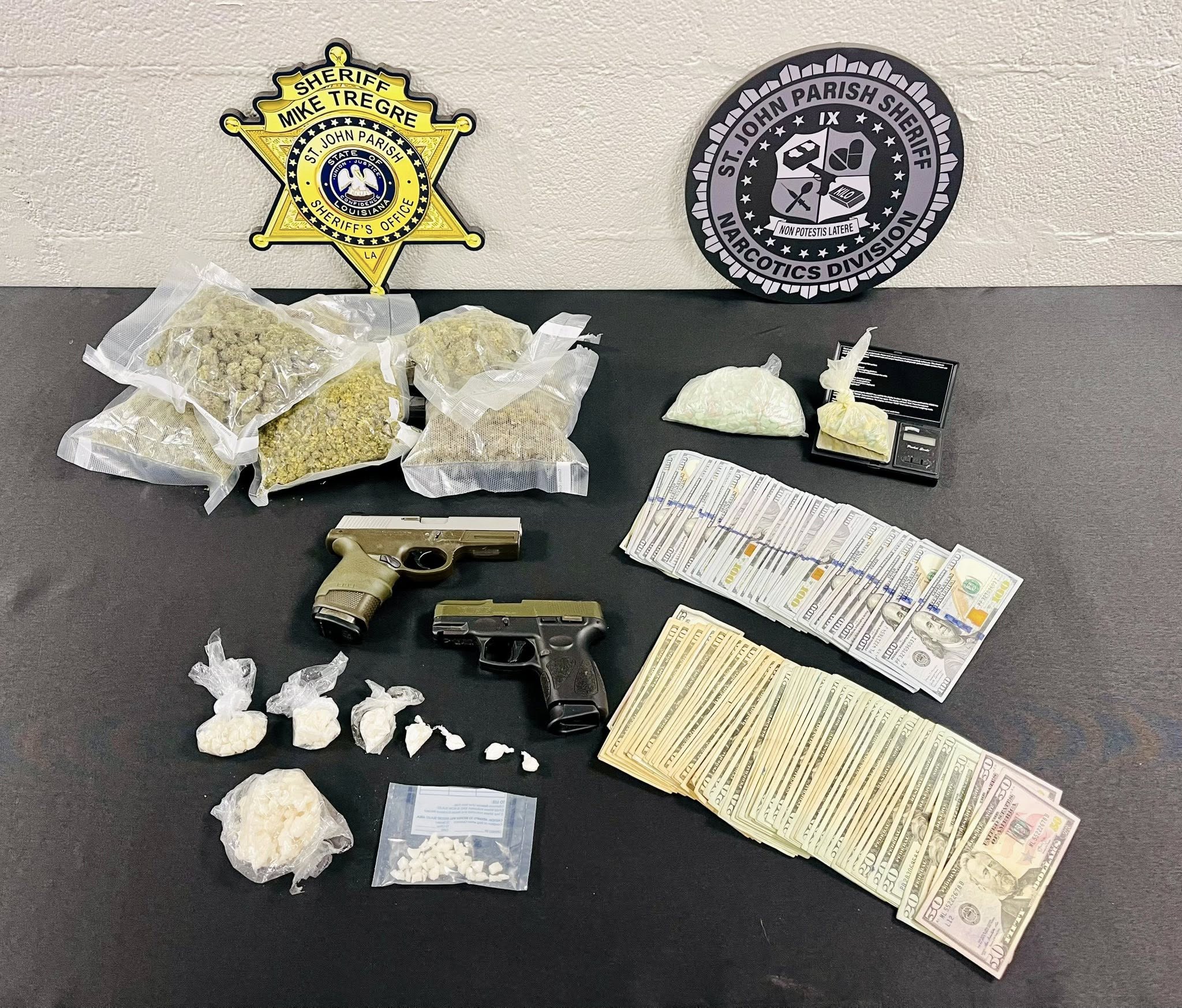Local legislators discuss success, failures at session
Published 12:00 am Saturday, July 17, 1999
LEONARD GRAY / L’Observateur / July 17, 1999
LAPLACE – Legislators in the River Parishes chalked up successes and failures in the 1999 legislative session recently concluded.
Sen. Ron Landry (D-LaPlace) made headlines through his successful push toliberalize the motorcycle helmet laws, which freed many people to decide for themselves whether they would wear a helmet.
“It’s always been my position the mandatory helmet law didn’t do much to save lives or prevent brain damage,” Landry commented. Helmets are onlydesigned for impacts of at most 25 mph, and some full helmets can actually cause spinal injury by their design.
When the mandatory helmet law was first approved, federal legislation mandated daytime running lights on motorcycles. The lights, making forincreased visibility, made the real difference in saving lives, Landry insisted.
“We need to do more with driver’s education,” he continued, adding that helmets at low speeds do a lot of good. “At 70 mph, that helmet’s notgoing to do you a bit of good.”One often-overlooked achievement Landry claims is his bill mandating hearing screening for all newborns in Louisiana, “which I think is important.”Such screening can find hearing-impaired infants who otherwise might be wrongly classified as learning disabled.
Another medical bill Landry influenced is on medical monitoring of people who might be affected by environmental factors. The bill which wasfinally approved provides for such monitoring in cases where a condition caused by the environmental factor has manifested itself.
Landry pushed to broaden that to include people at serious risk, hoping such monitoring could head off some conditions earlier in their development when they are more easily treated.
Landry, chairman of the Senate Transportation Committee, didn’t give a good mark for the Legislature’s achievements on Louisiana highways.
Rather, legislation was approved over his objections to lower construction standards to reduce state liability. “I think they went toofar,” he said.
However, Landry did shepherd through legislation for engineering dollars for the Avenue of the Americas project to build a direct road from the Port of South Louisiana’s Globalplex facility to Interstate 10. Also, moneywas found to finance the parallel taxiway at St. John Airport to improveand upgrade that facility.
He is proud of the Legislature’s spending plan for the state’s anticipated tobacco settlement funds that includes annual interest payments from a savings account to every public school district in the state for educational improvements.
Three accounts are to be set up, including a TOPS fund for college scholarships, a health care/research fund and the Educational Excellence Fund.
There will be a three-year phase-in period during which the school districts will share in immediate cash grants. After that, 25 percent willgo directly into the EEF account and the districts will get annual checks from the accrued interest.
“I wanted to put it all in trust,” Landry said. “A lot of us weren’tsatisfied, and some wanted to put off making a decision, but we needed to act.”Landry was a co-sponsor in the bill with Sen. Foster Campbell (D-BossierCity), along with Sens. Jim Cox, Don Cravins, B.G. Byess, Max Jordan,Paulette Irons and Max Malone.
Landry also attempted to push a bill through creating the crime of “environmental fraud.” The bill passed the Senate but died in Housecommittee, opposed as it was by the state departments of Health and Hospitals and Environmental Quality, along with the petrochemical industry and Gov. Foster’s office.Landry said the bill would have made state employees who intentionally withhold data on harmful environmental damage from the public liable if someone suffers as a result.
“Now the only thing you could get them on is malfeasance in office, but that’s hard to do,” Landry said.
Landry did push through a toughened-up seat belt law, allowing police to stop drivers with the primary offense of not wearing a seat belt.
Landry also pushed through a bill mandating jail time for second-offense DWI offenders, but a statewide open container ban failed despite federal prompting.
He fought unsuccessfully against a measure to provide that at four-way intersections where the traffic light is not working, the intersection be considered by drivers as a four-way stop.
Landry said that action would likely cause more accidents than it would prevent, as drivers would be confused or, at night, not even be aware of the traffic light.
The school-courtesy bill, where students are now told to use courteous language in addressing teachers and principals in school, got Landry’s vote, but he deleted the language in the bill which would also have mandated students stand up when an adult enters the room.
“I voted for it, but I think it’s something we shouldn’t legislate,” Landry commented.
Landry worked with Rep. Joel Chaisson II (D-Destrehan) on the billpermitting levee boards in St. Charles and St. John the Baptist parishes toconstruct bicycle paths.
“It’s going to be really good for St. Charles Parish in recreation andtourism,” Chaisson observed, “You could bike from Destrehan and Ormond to Audubon Park, and vice-versa.”Chaisson said he was pleased with the session and cited his own achievements.
This included the establishment of a DWI-offender data bank, accessible to district attorney offices.
“This bill for the first time gives prosecutors the tool they need to keep repeat offenders from slipping through the cracks,” Chaisson said.
Rep. Bobby Faucheux’s legislative achievements included a bill to have theGaryville Timbermill Museum under the Office of State Parks, once the museum is clear of debt. At the June 28 meeting of the St. John theBaptist Parish Council, land adjoining the museum was bought with enough money to clear the debts.
Faucheux also pushed through legislation to continue the east bank sessions of the 40th Judicial District Court, extending temporary vehicle license registration periods and liberalizing the accessibility of justices of the peace to the public in St. John and St. James parishes.”Basically, if you can’t find your local JP in a timely manner, you can go to any other one in the parish,” Faucheux explained.
A bill was also passed allowing for the transfer of property from the state highway department to the Gramercy Police Department. The formerJr. Food Mart at the corner of Louisiana Highways 641 and 3274 will beused for a new, larger police headquarters.
Better street lighting will be installed at the intersection of Interstates 10 and 55, through Faucheux’s prompting, and a railroad crossing will be added at Dupont Road. But this comes at the cost of closing one crossing inReserve and one in LaPlace, to be determined later.
Return To News Stories





